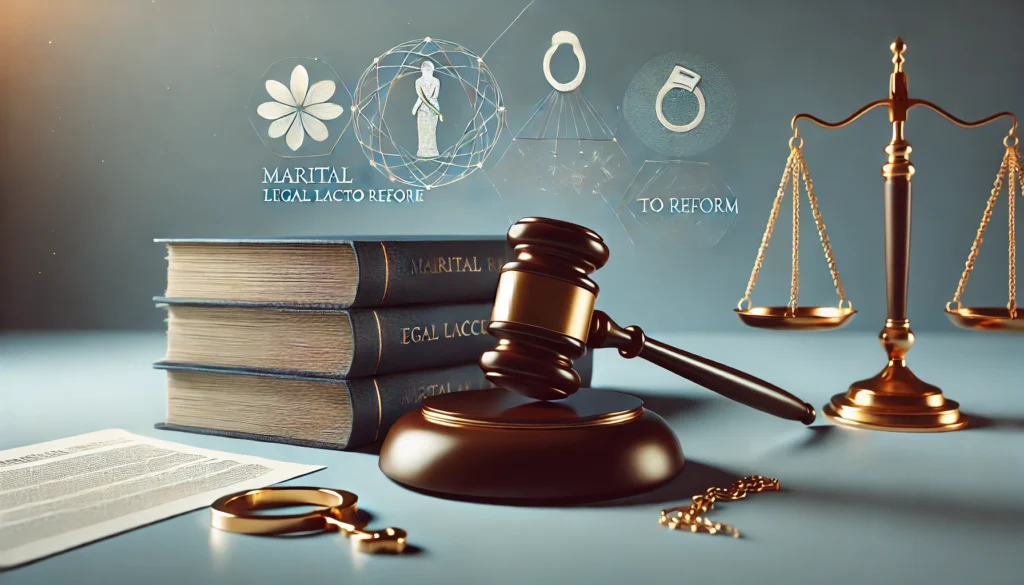Published On: 10th August, 2024
Authored By: Palak Duneja
Delhi Metropolitan Education
ABSTRACT
This article examines the judicial review of arbitration awards, focusing on when and why courts intervene. Although arbitration is designed to be a swift alternative to traditional litigation, judicial oversight is crucial to ensure fairness and legal compliance.
The review process is generally limited, with courts looking at procedural fairness, adherence to public policy, and whether arbitrators stayed within their authority. Courts may step in if there are serious procedural errors, evidence of arbitrator bias, or if the award contradicts key public policies. This balance between efficient dispute resolution and necessary legal oversight helps maintain the integrity of the arbitration process.
INTRODUCTION
Arbitration can be described as a private, out-of-court method for settling disputes where the parties included concur to have an unbiased third party, called an arbitrator, make an official choice. Arbitration is regularly less formal and less costly than a trial and can be quicker. It can moreover be a stronger alternative for claims that may well be as costly or time-consuming to seek after in court, or that the court might not be able to handle.
In the words of the World Intellectual Property Organisation or WIPO, an Arbitration can be characterized as, ‘Arbitration is a procedure in which a dispute is submitted, by agreement of the parties, to one or more arbitrators who make a binding decision on the dispute. In choosing arbitration, the parties opt for a private dispute resolution procedure instead of going to court.’[1] Similarly, Section 2(1)(a) of the Arbitration and Conciliation Act, 1996 (Hereinafter Referred to as A&C Act,1996) lays down that arbitration means any arbitration whether or not administered by a permanent arbitral institution.[2]
Further, Judicial intervention occurs when the courts step in to ensure that the government follows the law and respects the rights of the People. This involves checking new laws against the constitution and stopping those that break the rules hence, declaring them to be Void-ab-initio. Courts also protect individuals from government actions that unfairly hurt them and ensure that everyone, including the officials, adheres to the law. By reviewing decisions made by government agencies, courts can correct mistakes and prevent abuse of power, maintaining fairness and justice[3].
Therefore, Judicial intervention in arbitration is when courts get involved in the arbitration process to ensure everything is fair and legal. While arbitration is meant to resolve disputes outside of court, sometimes the court’s help is needed. For instance, if people can’t agree on choosing an arbitrator, a court can step in to make the decision. A Court can also enforce agreements to arbitrate, provide temporary relief like stopping one party from acting unfairly before the arbitration is done, and ensure the arbitrators are unbiased. If something goes wrong, for instance, if the process is unfair or if the arbitration award (the final decision) is questionable, the courts can set it aside or help enforce it if one party refuses to comply.
ABOUT ARBITRAL AWARD
The word, “Award” has not been characterized within the Arbitration and Conciliation Act, 1996, as corrected up to date. It was ordered by the Indian Parliament, to embrace the Model Law proposed by the General Assembly of the United Nations UNCITRAL Model Law on Universal Commercial Arbitration and UNCITRAL Conciliation Rules, 1982. It was enacted with a question to set up a bound-together framework of laws to reasonably and productively address the issues relating to worldwide commercial relations.
However, Section 2(1)(c) of the Arbitration and Conciliation Act, 1996 basically says, an “Arbitral Award” incorporates an interim grant[4]. In any case, as per the New York State Unified Court System, the Award implies, “A decision of an Arbitrator, Judge or Jury[5]” In a common speech, an award could be a decision by the arbitrator/s, which is given after due contemplations of the focuses.
Basically, an arbitral tribunal’s expression of its decision about a disagreement between the parties before it is known as an arbitral award[6]. In H.G. Bajaj v. Share Deal Finance Consultants Pvt. Ltd.[7] it was held that ‘an arbitral award is the final determination of a claim or part of a claim or counterclaim by the Arbitral Tribunal. Section 31 provides that an arbitral award shall be made in writing and shall be signed by the members of the arbitral tribunal. If the arbitral tribunal consists of more than one arbitrator, it will be sufficient if a majority of the members of the tribunal sign it provided reasons are given for the omitted signatures.’
Section 31 of the Arbitration and Conciliation Act, 1996[8] gives for shape and substance of an arbitral award. An uncovered perusing of this Section, it is clear that taking after are the fundamental ingredients of an Award:
- Award must be in the Written Form, [Section 31(1)]: It must be signed by the individuals of the tribunal subject to special cases given within the Section
- The Award ought to state the reasons upon which it is based subject to exceptions given within the Section, [Section 31(3)].
- Award ought to state its date, [Section 31(4)]
- Award ought to state its place, [Section 31(4)]
- Interim Award can, moreover, be made inside the domain of Section 17 of the A&C Act, 1996,
- After the Award is made, a signed duplicate ought to be delivered to each party [Section 31(5)]
- further encourages to give that in case of more than one Arbitrator in a Tribunal, signing on the Award by the larger part of Arbitrators is sufficient provided, the Award records the reasons for non-signing of the Grant by any of the Arbitrators [Section 31(2)].
- In case, the parties so concur, the Award may be passed without allotting any reasons. [Section 31(3)]. In case of settlement [Section 30] moreover, giving reasons for the Award isn’t required.
- Once the ultimate grant is made, arbitration procedures stand ended as per the arrangements of Section 32 of the A&C Act, 1996. However, beneath Section 33 of the A&C Act, 1996, the Parties may approach the Arbitral Tribunal for rectification and/or for seeking interpretation of the award and/or for extra award.
Upon accepting of any such ask, the arbitral tribunal may consider such request/s and if it finds such ask to be legitimized, it may make such redress or grant such elucidation as it may regard fit. It may moreover pass such Additional Award as may be legitimized. Any such rectification, elucidation of the award, and/or extra grant should form a part of the final Award.
COURT UNDER THE A&C ACT,1996
In terms of Section 2(1)(e)[9] of the Act, the court, not within the case of international arbitration, implies the principal civil court of original jurisdiction in a district and incorporates the High Court exercising ordinary original purview. Furthermore, sections 11(5) and 11(6) of the Act[10] relate to the arrangement of the authorities by the High Court or the Apex Court, as the case may be. Not at all like the remaining Sections of the Act that utilize the word “court”, Section 11 particularly employs the words “High Court” or “Supreme Court” as the case perhaps.
Section 29A[11] of the Act gives the control to amplify the order of the authority, which has lapsed or to substitute an arbitrator. From the perusing of Section 2(1)(e)of the Act, it is evident that in case of an intervention other than worldwide commercial arbitration, the principal Civil Court of original jurisdiction or the High Court, which works out its conventional unique civil jurisdiction, having purview to decide the questions shaping the subject-matter of the intervention, should be the court.
Commonly, the term characterized in Section 2(1)(e) of the Act within the setting of the power to amplify the order of the arbitrator beneath Section 29A (4) of the Act would be with the principal civil court. In any case, the Courts have consistently interpreted the term ‘Court’ in Section 29-A to refer to the different High Courts or the Preeminent Court.
The Bombay High Court in the case of Cabra Instalaciones Y. Servicios, SA v. Maharastra State Electricity Distribution Company Limited[12], watched that for seeking expansion of the order of an arbitral tribunal, there are substantive powers conferred on the Court and more especially when the Court needs to substitute one or all the authorities, which is a control to form arrangement of a new/substitute authority or any part of the arbitral tribunal. Hence, the Bombay High Court concluded that once the arbitral tribunal was designated by the Preeminent Court exercising powers under section 11(5) perused with section 11(9) of the Act, it would only be the purview of the Incomparable Court to pass orders on application beneath Section 29-A of the Act.
JUDICIAL REVIEW
Judicial Review is the control of the Courts to decide the legality of an administrative act in a case instituted by a wronged individual. It is the control of the Court to pronounce an administrative Act void on the grounds of unconstitutionality. Beneath the constitution of India, parliament isn’t preeminent. Its powers are restricted in two ways. To begin with, there’s the division of powers between the union and the states. Parliament is competent to pass laws only in regard to those subjects which are ensured to the citizens against each form of administrative infringement.[13]
Being the gatekeeper of Fundamental Rights and the authority of constitutional clashes between the union and the states about the division of powers between them, the Apex Court stands in an interesting position where it is competent to work out the control of reviewing administrative enactments both of parliament and the state councils.
This is often what makes the court an effective instrument of judicial review beneath the structure. As Dr. M.P. Jain has appropriately observed: “The doctrine of judicial review is thus firmly rooted in India and has the explicit sanction of the constitution.“[14]
Within the system of the constitution which ensures a person’s Fundamental Rights, isolates control between the union and the states, and clearly characterizes and delimits the powers and capacities of each organ of the state counting the parliament, judiciary plays a really important part beneath their powers of judicial review.
The control of judicial review of legislation is given to the judiciary both by the political hypothesis and text of the structure. There are a few particular provisions within the Indian constitution, judicial review of enactment such as Acts 13, 32, 131-136, 143, 226, 145, 246, and 372[15].
A case of Judicial Review includes the case of Shankari Prasad v. Union of India[16], wherein the First Amendment Act of 1951 was challenged before the Apex Court on the ground that the said Act abridged the right to property and that it could not be done as there was a restriction on the amendment of Fundamental Rights under Article 13(2).
JUDICIAL REVIEW OF ARBITRATION AWARDS
Judicial review of arbitral awards involves courts stepping in to scrutinize the final decisions made in arbitration to ensure they adhere to legal standards and principles of fairness. While arbitration is designed to be a quicker, more private alternative to court litigation, judicial oversight is sometimes necessary.
Courts may review the arbitration process to confirm that it followed the law and proper procedures and that the award does not violate public policy. They also investigate any potential arbitrator misconduct, such as bias or corruption, and verify that arbitrators did not exceed their authority by deciding on issues outside the scope of the arbitration agreement. If the court finds significant problems, it can set aside the award.
Moreover, courts play a crucial role in enforcing arbitral awards, ensuring that they are legally binding and complied with, even when a party resists. This judicial review helps maintain the integrity and fairness of the arbitration process, making it a reliable method for resolving disputes.
Section 5 of the Arbitration and Conciliation Act, 1996[17] (A&C Act), particularly bargains with the degree of legal intervention in provisions administered by the Act. This section basically builds up that legal intervention in arbitration ought to be constrained, and courts ought to abstain from interfering with arbitral procedures unless expressly given for within the Act itself. The Act points to advancing arbitration as a favored strategy of dispute resolution by minimizing legal obstructions and encouraging a quicker determination.
Scope of Legal Intervention Broadened The adequacy of any enactment is that it must be judged by its execution instead of its intentions. Sadly, the Indian courts have immensely broadened the scope of the challenge of awards to much more than what is accessible beneath the 1996 Act. In Oil & Natural Gas Corp. Ltd. v. SAW Pipes Ltd.[18] the Apex Court of India received a wide interpretation of the term “public policy” by including “error of law” as a modern ground for setting aside an arbitral award. This “error of law” ground was not given beneath the 1996 Act. The judgment by the two-judge Bench in ONGC negated the judgment of the three-judge Bench in Renusagar Power Plant Ltd v Gen Electric Co.[19] This deviation reflects legal indiscipline and an infringement of the authoritative point of reference of a larger Bench. Whereas the Renusagar case barely translated the term ‘public policy of India,’ the Division Seat extended it to the degree that arbitral awards may presently be checked on their merits, representing a backward step in laws related to ADR in the midst of globalization.[20]
The Court at that point successfully utilized this modern ground as a premise to survey the merits of the case. Whereas the Saw Pipes choice is, at first look, only pertinent to the court to set aside awards with reference to arbitration in India, the repercussions of this choice may possibly expand to acknowledgment and authorization proceedings of foreign awards in India[21].
However, A strict translation of “Competence-Competence” would dictate that courts restrain themselves from building up the prima facie presence of an intervention understanding, and the arbitral tribunals be cleared out to substantively rule their own purview. Though this rule does not bargain with the conclusion and authorization of arbitral awards, it certainly includes the issue of court intercession and judicial review within the arbitration.[22]
The scope of judicial review in arbitration is typically limited to ensure that arbitration remains an efficient and alternative dispute resolution mechanism while still upholding fairness and legal standards. Here are the key aspects that define this scope:
- Compliance with Law and Procedure: Courts ensure that the arbitration process adheres to applicable laws and proper procedures. If there were significant procedural irregularities, such as failure to give a fair hearing, courts might intervene.
- Public Policy: Courts review arbitral awards to ensure they do not violate public policy. An award that conflicts with fundamental legal principles or societal norms can be set aside.
- Jurisdiction and Authority: Courts check whether the arbitrators acted within the scope of their authority as defined by the arbitration agreement. If arbitrators exceed their jurisdiction, the award, or portions of it, can be invalidated.
- Arbitrator Impartiality: Courts examine claims of arbitrator bias, corruption, or misconduct. If evidence shows that the arbitrator was not impartial or had a conflict of interest, the award can be annulled.
- Due Process: Ensuring that both parties have an equal opportunity to present their case is a critical aspect of judicial review. Courts will intervene if one party is unfairly disadvantaged during the arbitration process.
- Enforcement of Awards: While courts generally support enforcing arbitral awards, they will refuse enforcement if the award fails to meet the above criteria or if there are grounds under specific legal frameworks, such as the New York Convention[23] on the Recognition and Enforcement of Foreign Arbitral Awards.
Overall, judicial review in arbitration balances the need for efficient dispute resolution with the necessity of legal oversight to prevent injustice and maintain public confidence in the arbitration process.
Section 34[24] beneath Part I of the 1996 Act lays down the arrangements beneath which applications can be filed to set aside arbitral awards. Section 48, Part II of the 1996 Act gives the conditions for enforcement of foreign awards. Sections 34 and 48 of the 1996 Act basically reflect each other in terms of their arrangements, although an application challenging an arbitral award is recorded beneath section 34 of the Act.
The informative notes were taken after Sections 34(2)(b)(ii) and 48(2)(b)[25] of the 1996 Act make clear that a party seeking to set aside or resist acknowledgment and requirement of an arbitral award on grounds of public policy faces a very high threshold. Basically, in order to arrange to be opposite to the open approach of India, the grant must rise to the level of having been initiated by extortion or debasement.
[1] What is Arbitration, https://www.wipo.int/amc/en/arbitration/what-is-arb.html ( Last visited Jun 26, 2024)
[2] Arbitration and Conciliation Act, 1996, § 2, No. 26, Acts of Parliament, 1996 (India)
[3] Judicial Intervention, https://www.collinsdictionary.com/dictionary/english/judicial-intervention ( Last Visited Jun 26, 2024)
[4] supra note 2
[5] Glossary- Common Legal Terms, https://www.nycourts.gov/legacyPDFs/courts/6jd/forms/SRForms/glossary_common_legal.pdf (Last Visited Jun 24, 2024)
[6] General provisions of Arbitration, http://student.manupatra.com/Academic/Abk/Arbitration-and-ADR/CHAPTER-1.htm (Last Visited Jun 28, 2024)
[7] H.G. Bajaj v. Share Deal Finance Consultants Pvt. Ltd, AIR 2003 BOM 296
[8] Arbitration and Conciliation Act, 1996, § 31, No. 26, Acts of Parliament, 1996 (India)
[9] supra note 2
[10] Arbitration and Conciliation Act, 1996, § 11, No. 26, Acts of Parliament, 1996 (India)
[11] Arbitration and Conciliation Act, 1996, § 29, No. 26, Acts of Parliament, 1996 (India)
[12] Cabra Instalaciones Y. Servicios, SA v. Maharastra State Electricity Distribution Company Limited, 2019 SCC Online BOM 1437
[13] Tatheer Fatima, Judicial Review, INDIAN BAR ASSOCIATION (June 28, 2024, 10:10 AM), https://www.indianbarassociation.org/wp-content/uploads/2013/02/Judicial-Review.pdf
[14] Chinmoy Roy, Judicial Review and the Indian Courts, SSRN (Jan 24, 2012) https://papers.ssrn.com/sol3/papers.cfm?abstract_id=1990601
[15] INDIA CONST.
[16] Shankari Prasad v. Union of India, AIR 1951 SC 458
[17] Arbitration and Conciliation Act, 1996, § 5, No. 26, Acts of Parliament, 1996 (India)
[18] Oil & Natural Gas Corp. Ltd. v. SAW Pipes Ltd., (2003) 5 SCC 705
[19] Renusagar Power Plant Ltd v Gen Electric Co., (1984) 4 SCC 679
[20] Ibid
[21] Supra Note 18
[22] Bhatty Saadia, Competence-Competence, JUS MUNDI (Jun 23, 2024, 12:11 PM) https://jusmundi.com/en/document/publication/en-competence-competence#:~:text=According%20to%20the%20Competence%2DCompetence,certain%20circumstances%2C%20subsequent%20judicial%20review.
[23] United Nations, Convention on the Recognition and Enforcement of Foreign Arbitral Awards, (New York, 1958), UNICTRAL (Jun 25, 2024, 10:25) https://uncitral.un.org/sites/uncitral.un.org/files/media-documents/uncitral/en/new-york-convention-e.pdf
[24] Arbitration and Conciliation Act, 1996, § 34, No. 26, Acts of Parliament, 1996 (India)
[25] Arbitration and Conciliation Act, 1996, § 48, No. 26, Acts of Parliament, 1996 (India)




